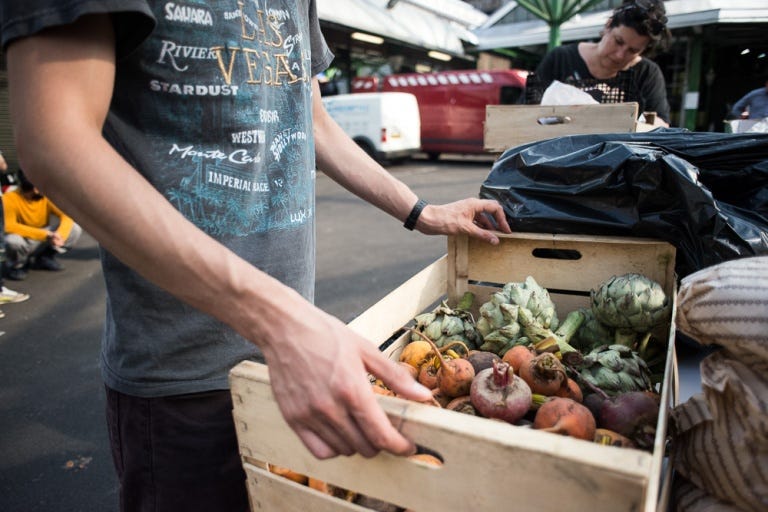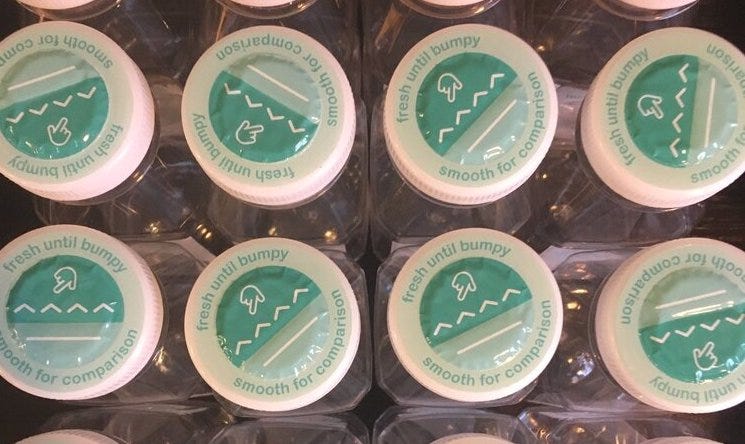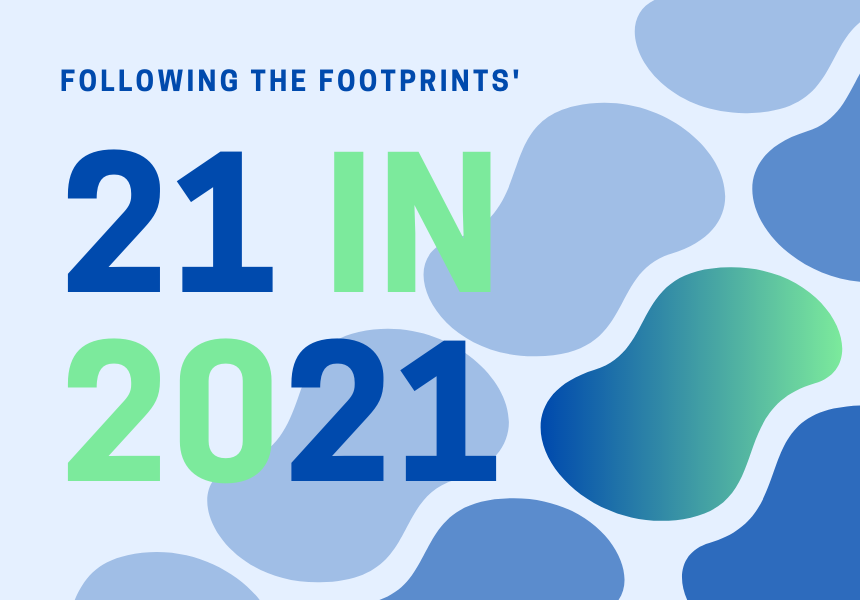🌱 Making Ends Meet: What Can Your Business Do To Reduce Food Waste?
Featuring Mighty, Days Brewing, Mimica and more...
Happy Monday!
This week we’re focused on food waste, and your product’s end of life. We cover:
Household food waste - what can you do?
The end of use-by dates? Mimica are within touching distance.
In case you missed it: 2021 Wrapped: 21 brand initiatives we’ve loved, and a thank you from us.
> Good News This Week
🎯 Mighty announced the launch of M.LKOLOGY, a vegan milk alternative that is fully carbon neutral. They’ve worked with ClimatePartner to achieve this status.
🎯 Days Brewing announced they’ve achieved B Corp certification.
🎯 Two Drifters Distillery announced they’e achieved B Corp certification.
⭐️ Baybel launched their first plant based range in time for Veganuary. It comes in a fully recyclable paper outer bag, and they’re working with TerraCycle to make other elements of their packaging recyclable too.
⭐️ Iceland has partnered with Mondi to accelerate its transition to low plastic packaging. For one product line alone, they aim to reduce the amount of plastic used per year by 80%.
⭐️ Tesco announced they plan to deploy fully electric heavy goods trucks at the Wales distribution centre in a ‘UK first'
⭐️ Burger King unveiled a vegan nugget range as part of their plans to build a 50% meat-free menu.
> Click on each link to read more.
> Quick Take
Household food waste - what can you do?
For years, we’ve seen the finger pointed at food businesses - particularly supermarkets - for poor practises that have resulted in millions of tonnes of nutritious food being sent to landfill to rot. However, they’re not the only ones at fault. Household food waste in the UK stood at an eye-watering 6.6 million tonnes in 2018 - 70% of the UK’s entire food waste bill. So, with businesses now clearing up their act by working with food partners (see our quick guide how), it’s about time more attention was paid to household food waste - and brands have a big role to play.
Whilst some communities across England have benefited from a food recycling service for nearly a decade, other local authorities (LAs) have been a little slower to roll it out. However, statistics from 326 English LAs who provided figures to WRAP in 2018/2019, showed that 160 LAs did not provide a food waste recycling service to their residents, with 11.7 million households going without. Thankfully, this is all set to change in 2023. Plans first announced in 2020, as part of the Environmental Bill will see all English households have their food waste collected. This will result in an extra 1.35 million tonnes of food waste being picked up by 2029.
With food waste accounting for 30% of the residual waste stream, there are enormous environmental and financial benefits to making food waste recycling the norm. Preventing food reaching landfill will cut GHG emissions by approximately 1.25 million tonnes per year - particularly methane, which is 86x more potent than CO2. Instead, by sending it to an anaerobic digester, the waste can generate biogas for the production of mechanical power, heat or electricity.
So, what’s hindering the roll out of food waste collection recycling by LAs? The critical factor is funding - as emphasised by Charlotte Morton, CEO of the Anaerobic Digestion and Biogas Association (ADBA): “lack of funding is preventing LAs from putting the infrastructure in place to collect this food waste, and being able to do so, as required by Government, by 2023. We cannot afford any delays if the UK is to meet its Net Zero targets by 2050”.
What can businesses do about this? Like many environmental issues, there is not one solution. Mandating the use of food waste bins will definitely help curb GHG emissions but in a wider context, so we encourage you to reach out to your local authority and encourage your consumers to do the same. Ultimately, minimising and preventing food waste need to be prioritised. Tackling the end of life of your product is a challenge, but educating your consumers is a great place to start.
Interested? Follow up with:
From Waste to Value: How to Tackle Food Waste with FutureLearn
For hospitality & food service: Guardians of Grub
For consumers: Out of Date
For consumers: Love Food Hate Waste
Business with surplus food? Find your nearest food bank or redistribution charity to donate it to.
Read about what Rubies in the Rubble are doing to engage their consumers in reducing household food waste.

Haven’t subscribed to Following the Footprints yet?
> Brand Spotlight
The end of use-by dates? Mimica are within touching distance.
Did you know that use-by dates are founded on the assumption that food is stored in suboptimal conditions, representing a worst case scenario? In homes and food businesses, this is fuelling a throwaway culture, and both your pocket and the planet are paying for it. So, let us introduce Mimica, who have developed an alternative.
Founded by Solveiga Pakštaitė, Mimica is a London-based food packaging company, aiming to bin traditional use-by dates in favour of a real-time, responsive system. Conceptualised whilst working on a charitable project with visually impaired individuals in 2014, Solveiga designed a tactical-based label to provide a more accurate gauge of a product’s freshness. Today, that product is known as “Mimica Touch” - a bio-responsive food expiry label that reacts to its surrounding environmental conditions.
Mimica Touch contains a gelatine that is calibrated to degrade at the same rate as the product inside, revealing bumps as it spoils. The premise is straightforward: if the gel is smooth, the food is edible; if it’s bumpy, then it’s a no go. Initially, the gelatine was animal-based, causing an uproar amongst campaigners. Mimica listened, and true to their nature, adopted a plant-derived alternative - earning them vegan certification. Whilst the labels are compatible with dairy, meat and juice products, Mimica are also branching out to develop labels to help safely store COVID vaccines.
By extending the shelf life of perishable goods by just two days, Mimica says it could cut retail and household food waste by 50 and 63% respectively. Beyond food waste, consumers, producers and retailers can benefit from increased food safety and cost savings. Helping other brands get to grips with improving their product’s end of life, it seems like time is up for use-by dates.
> In case you missed it
🌟 2021 Wrapped: 21 brand initiatives we’ve loved, and a thank you from us.
> Follow up with…
Guide: Label better, less waste: Food date labelling guidance
Podcast: Rethinking Food Waste with Gousto, Olio and Fareshare
Documentary: Just Eat It: A Food Waste Story.




